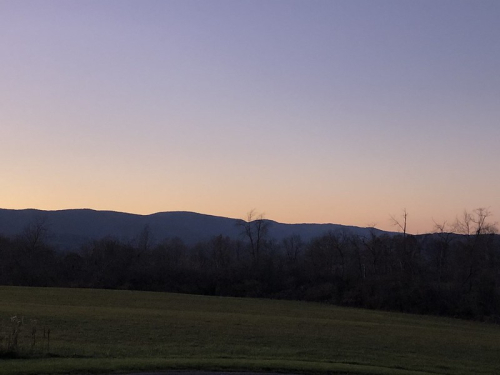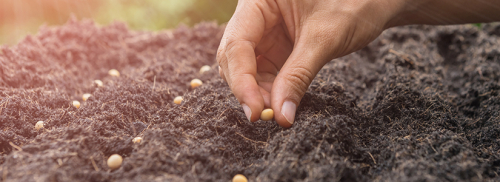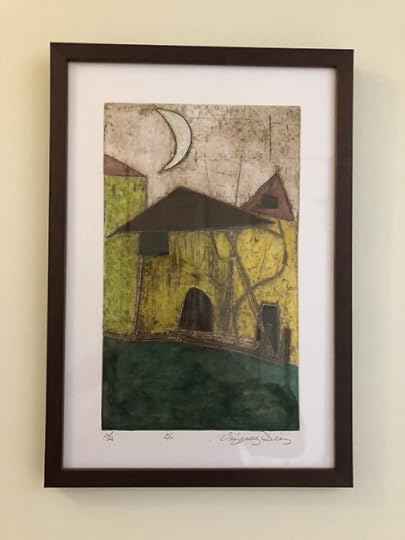Rachel Barenblat's Blog, page 42
November 10, 2020
Out of joint
It's unseasonably warm for western Massachusetts in November. Day after day the high reaches 75. Given climate change, has unseasonable lost its meaning? Last month when it snowed a little I moved my short-sleeved shirts into winter storage; now I'm taking them back out again. The time has changed, we've "fallen back," night falls early. There's something deeply disconcerting about early nightfall when it's this warm. The world feels out of joint. I think of the jokes we crack: "It's March 282nd," as though time stopped moving forward in its normal patterns when the pandemic began for us. I don't know how many days it's been since March. I don't want to count them: they feel lost. So much feels lost. This week we're all on tenterhooks again. Has democracy lost its meaning? The weather app tells me we'll be back to cold weather in a few days. I resolve to go outdoors today while I still can. My fears tell me they know what's coming.

November 8, 2020
Psalm in the spirit of Minecraft
Because we combine
creation's building blocks:
andesite, birch, clay.
Because seeds will sprout
and we transform wheat
into bread worth blessing.
Because it's our job
to bring light
to dark places.
Because the only way
this world makes sense
is if we keep building.
Sometimes we turn around
and everything we tended
is broken. Still we repair
each shattered place,
growing new flowers
over the earth's wounds.
In an early week of the psalms class I'm teaching for clergy (via Bayit: Building Jewish), we read an excerpt from Psalm in the Spirit of Dragnet by Julie Marie Wade. Our conversation afterwards took us to all kinds of places, and one of the ideas it sparked in me was: what about a psalm in the spirit of Minecraft? I've been playing the game with my son since the pandemic began, and have been surprised at how satisfying I find it. For me there's something fundamentally hopeful about the game. And, of course, building is our root metaphor at Bayit. As an experiment, I read this poem aloud to my son without telling him the title, and he immediately recognized what I was doing, which makes me happy. Here's to more building.

November 6, 2020
Every righteous person matters
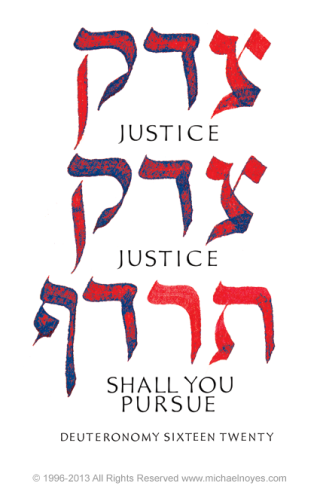 In this week's Torah portion, Vayera, God decides to destroy the cities of Sodom and Gomorrah, because "their sin is so great."
In this week's Torah portion, Vayera, God decides to destroy the cities of Sodom and Gomorrah, because "their sin is so great."
Later in the parsha we'll see an example of their sin: an angry mob demanding that Lot release the strangers whom he's protecting, so that the mob can rape them. That's one way to read the sin of Sodom and Gomorrah: their response to strangers is violent domination.
Here's another, from the prophet Ezekiel: “This was the guilt of your sister Sodom: arrogance! She and her daughters had plenty of bread and untroubled tranquility, yet she did not support the poor and needy.”
But before that happens, Abraham argues with God: what if there are fifty righteous people there? Or forty? And he bargains God down, and God agrees that if a single minyan of tzaddikim can be found, the cities will be spared.
This year we're reading these verses against the backdrop of election aftermath. We've all been on tenterhooks waiting for votes to be counted. Maybe feeling afraid of violence or afraid for our nation.
And here's Abraham saying to God: wait, even if You're despairing, count everybody. Here's what I take from that passage this year: every righteous person counts. Every righteous person makes a difference. Even if we may feel insignificant in the big picture -- every one of us who is trying to do what's right, matters.
Many translations of this dialogue between Abraham and God about Sodom and Gomorrah use the terms "guilty" and "innocent," e.g. "Far be it from You... to bring death upon the innocent as well as the guilty, so that innocent and guilty fare alike!" In that translation, Abraham is urging God to remember the people who are innocent of wrongdoing.
But I would argue that the plain meaning of the Hebrew words rasha and tzaddik is stronger than that. A rasha is someone who acts wickedly. Some say: a rasha is concerned only with themself and their own needs, rather than the needs of the community or the needs of the vulnerable. And a tzaddik isn't just "innocent." A tzaddik is someone who acts righteously -- someone who acts with tzedek, justice.
And what is righteous behavior? Judaism has a lot of answers to that -- we have 613 instructions, for starters! But here's a shorter list. Righteousness means loving the stranger -- feeding the hungry -- caring for the widow, the orphan, and the stranger, in other words the powerless and vulnerable -- seeking justice with all that we are. That's our work. That is always our work.
And it's not always easy. Sometimes it feels like an uphill battle. The pastor John Pavlovitz writes,
"There is a cost to compassion, a personal price tag to cultivating empathy in days when cruelty is trending... Friend, I know you’re exhausted. If you’re not exhausted right now your empathy is busted. But I also know that you aren’t alone."
For those of us who trust science, it's exhausting to know that so many of our fellow Americans think masks infringe on their civil liberties -- or think covid is a hoax. Especially in a week with days where the US kept breaking our own records for new covid-19 infections: first 100,000, then 109,000... And that's just one reason to feel exhausted. Election uncertainty is exhausting. Fears of violence are exhausting.
But in this week's parsha what I hear Abraham saying is: don't give up. We need to keep doing the right thing: it matters, it makes a difference, even if we don't know it. We need to be tzaddikim. We need to keep loving the stranger, feeding the hungry, caring for the needy and the vulnerable, pursuing justice. Wearing our masks. Protecting the marginalized. Feeling empathy for others. Counting every vote.
This is our obligation as Jews -- as citizens -- as human beings. This was our work before the election; this is our work after the election. And yeah, this is hard work. Most things worth doing are.
Maybe there weren't ten tzaddikim in Sodom, but I believe there are tzaddikim everywhere. And if we're trying to act justly in the world, our work matters -- our work counts.
May Shabbat bring balm to our bruised and anxious hearts... so that when the new week begins, we can bring renewed energy to the work of doing what's right, the work described in the Langston Hughes poem that was our haftarah reading today, the work of building a better world.
This was my d'varling from my synagogue's Shabbat services this morning (cross-posted to my From the Rabbi blog.)

November 4, 2020
The day after
Beethoven's 7th,
all day, on repeat.
Because I need to know
there is meaning
in how we circle back
to this lament in minor mode.
I want to trust
the swell of grief
will give way to hope.
If you don't know the second movement of Beethoven's 7th symphony, you can hear it here.

November 3, 2020
Prayer for Our Country
O God and God of our ancestors
receive our prayer for this land that we love.
Pour out Your blessing on this nation and its government.
Give those who serve our country
appreciation for the Torah's principles of justice and peace.
Help them to see Your face in every constituent.
Cultivate in them, and in us,
awareness that we are all one family
obligated to care for each other with compassion.
Banish hatred from our hearts
and from the hearts of our elected officials.
Help us to make this country a light unto the nations.
May it be Your will
our God and God of our generations
that this nation be a blessing to all who dwell on earth.
Help us to enact the words of Your prophet:
“Nation shall not lift up sword against nation.
Neither shall they learn war anymore." And let us say: Amen.
I wrote this for the Days of Awe machzor several years ago. I'm re-sharing it again today, in hope.

October 28, 2020
Soup
I always forget how dried beans swell.
They start as tiny stones in my hand
but after an overnight salt water soak
they fill my red bowl to overflowing.
This week I revise them into posole --
it's meant to include hominy, but
in these pandemic times we all learn
to make do. I curl my tongue around
ancho and pasilla, remembering the music
of your lushly-swirled double ll's.
Raisiny peppers soften and come apart.
I want to blend into a chord like that.

October 22, 2020
Be gentle with you, and cultivate hope
Everyone I know is struggling right now. And by and large, the people in my circles have jobs; we have secure housing; we do not have COVID-19. If this year were a video game, we would be sailing through it on "easy" mode. This is still hard.
We're watching the pandemic surge all over the country. Hospitals are filling up. We remember New York last spring, the refrigerated trucks that had to serve as extra morgues, doctors re-using PPE because there isn't enough to go around.
We're watching the anointing of a new Supreme Court justice who may be poised to strike down the Affordable Care Act and undo a generation's progress toward the bodily autonomy of people with uteruses. Many of us feel powerless and afraid.
We're watching the election with a mixture of hope and dread. The president insists he cannot lose unless it's rigged. I've had congregants ask me: do I think voter intimidation will turn into actual civil war? (Probably not, but the fear is exhausting.)
We're trying to help our children navigate remote or hybrid school. My kid is lucky: right now he's at school for about 2.5 hours, four days a week. The rest of the time is asynchronous work that takes him almost no time at all. He's often at loose ends.
We're trying to help our children navigate the emotional and spiritual impacts of seven months of pandemic with no end in sight. Bedtime has become fraught. Tears happen more often and more easily. "This pandemic ruins everything," mine said.
We're grieving everything we've lost. Even those of us who haven't lost friends or family to COVID-19 (yet) have much to grieve. Planned visits to loved ones, or long-awaited vacations, or just... safely sitting at a coffee shop with other human beings.
Many of us struggle to drum up and sustain hope for the future. Many of us have lost our previous sense of safety in the world. And we're the lucky ones: not sick, not unemployed, not homeless, enough food to eat, enough hand sanitizer to get by.
Why am I reciting this terrible litany? In order to say: if you're struggling, you're not alone. In order to say: hey, be gentle with yourself. These are difficult times. It's normal to be overwhelmed, and anxious, and to feel like everything is a slog right now.
I mean, guess what: everything really is a slog right now. Our brains are spinning with anxious worst-case scenarios on every level, from the personal to the communal to the global. Of course we can't focus. Of course we're not working at capacity.
I've said before that this is a great time to strengthen our spiritual practices. (And if we don't have them, this is a great time to start.) And this is a time to be compassionate with ourselves, and to replenish ourselves however we can manage to do so.
Yes, everything is really hard right now. It's not you -- it's the world we're living in. Put on your own oxygen mask: nourish yourself in whatever ways you can. With music, or books, or Netflix, or petting your cat, or cooking, or whatever you can find.
Cultivate hope. Plant its seeds deep within, and water them, and nurture them, and strengthen your ability to feel those seeds growing. It's okay if you can't feel hope all the time. Try just feeling it for a single moment. And then a moment more.
And if you can't feel hope, then hope for the capacity to feel hope again -- that works too. And when you can breathe, see what you can do to help people who have it worse off than you do. And when you can't breathe, return to your oxygen mask again.

October 19, 2020
Cheshvan moon
I don't know anything about the artist who created this print. I found it in the San José Artisans' Market in Havana, in the last moments before our bus left the city and took us into the provinces. The art market is enormous, a warehouse filled with stalls where artists sell everything from oil paintings to handmade hammocks. I browsed its aisles, wandering, and this print caught my eye. The price was low, maybe twenty CUC$. What leapt out at me was the bright crescent moon over the close city rooftops.
The previous night we'd walked the streets of Old Havana under a new moon. Because of the embargo, tourists were few and far between. We stopped in at La Bodeguita del Medio, sipped rum, savored incredible music. We wandered the streets, our group breaking into smaller clusters as we found places for dinner. After dinner my foursome wound up on the rooftop of the Hotel Raquel, where a porter showed us mezuzahs and a cupola adorned with Biblical frescoes and spoke wistfully about cruise ships.
The crescent moon above us was the marker of a new month. Cheshvan: the month with no holidays except for Shabbat. The month when we return to the rhythms of "regular life" after the long stretch of spiritual work from Tisha b'Av to Simchat Torah. Today is Rosh Chodesh Cheshvan again. The pandemic isolates us now. I'm traveling in my mind: remembering walking with friends on the old cobblestone streets, marveling at the new moon over the city rooftops as music drifted through the air.

October 18, 2020
And everything in between
A rabbinic friend of mine just had a baby, so I am sending her a copy of Waiting to Unfold, the volume of poems I wrote during my son's first year of life, published in 2013 by Phoenicia Publishing. I had a few quiet minutes before an appointment, so after I inscribed the book to my friend, I started reading it, and I read the whole thing.
Reading it felt like opening a time capsule: inhabiting a reality that is no longer mine, a strange world I had almost forgotten. Pregnancy and nursing and colic and postpartum depression and emerging into hope again... I'm not sure how clearly I would remember any of those things, if I hadn't written these poems while they were happening.
It's not just that the poems open a window to then. They temporarily cloak me in then, like a shimmering holographic overlay. Rereading them, I feel grief and joy and most of all compassion and tenderness. For myself, back then. For everyone who's experiencing those realities now. For all of us, fragile and breakable and strong.
It makes me wonder what it will be like in ten years to reread Crossing the Sea, forthcoming from Phoenicia. Those poems were written as I walked the mourner's path between my mother's death and her unveiling. It wasn't written as systematically as Waiting to Unfold, but both volumes chronicle a kind of metamorphosis.
I think -- I hope -- that both volumes inhabit that sweet spot between my particular experiences (of new motherhood, of grief) and a kind of universality. Every parent of a newborn has some of the experiences I wrote about in Waiting to Unfold. Every person walks the mourner's path someday, for someone, because human life comes with loss.
It feels right to turn to poetry to distill and find meaning in birth and death. I mean those words as a merism: not only the beginning and endpoint of every human life but also everything that comes between. I wanted to quote Anne Sexton, "There is holiness in all." Though what she actually wrote was "there is joy in all."
So I'm thinking today about what kind of joy really is in all things, even the painful ones. For me that kind of joy is integral to authentic spiritual life. There's joy in being real, with myself and with others and with my Source, even when the path I'm walking takes me into the shadows. Writing is part of how I find my way back to life.

October 14, 2020
Stitching Sukkot to the first step toward spring
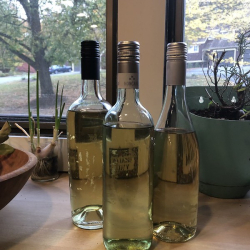
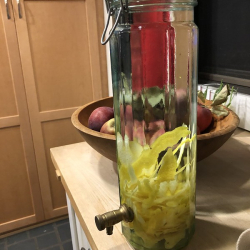
Last year's harvest; this year's beginning.
This year I take comfort in every tradition I can manage. Anything I've done in years past that I might do in years to come -- those things become a lifeline. A reminder that there was life before this difficult, terrible, anxiety-drenched year of global pandemic and national political uncertainty, and there will be life after this year, too. The holidays come and go every year. The autumn leaves blaze bright every year, and fall, and then grow anew. These rhythms remind me that the world will not end.
One of my annual traditions comes at the end of Sukkot: preserving the etrogim from Sukkot to taste at Tu BiShvat, the new year of the trees which falls here in deep midwinter. The etrog is called pri etz hadar, "the fruit of a splendid tree" (or a goodly tree). And Pri Etz Hadar is the name of an early mystical Tu BiShvat text and seder. Bringing the taste and scent of the etrog to Tu BiShvat is a way to link this fall with the coming winter -- and to evoke the new growth that hasn't yet come, but will.
As always, I've peeled five etrogim and put them under vodka in my tall glass infuser in the back of a cupboard. Within a few days I'll forget that they're there. All year long they will steep, slowly transferring their color, flavor, and fragrance. By this time next year, the vodka will be bright as sunlight and fragrant like an etrog scratched with a thumbnail to release its scent. I'll decant the contents, add simple syrup, and bottle the end result... so I can refill my infuser and begin the whole process again.
I'm not sure how I'll share this fragrant elixir with my community at Tu BiShvat this year. I can't imagine a reality in which we'd feel safe gathering indoors for a Tu BiShvat seder at the end of January. The pandemic won't be over by then. I suspect we'll all be sheltering-in-place at home by deep wintertime. Maybe I'll see if folks want to gather outdoors in the snow, among the dormant trees, and toast to their continued health and longevity (and our own!) at a safe social distance in the brisk fresh air.

Rachel Barenblat's Blog
- Rachel Barenblat's profile
- 6 followers


